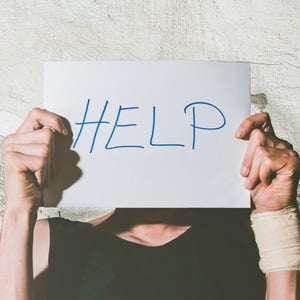
Today, 10 September, marks World Suicide Prevention Day. Suicide is the 15th leading cause of death globally, accounting for 1.4% of all deaths.
It’s evident that suicide is has a global impact. For every successful suicide, there are 25 failed attempts.
We take a look at some myths about suicide:
Myth 1: Suicide is impulsive.
The truth: According to the South African Depression and Anxiety Group, people who commit suicide tend to have had suicidal thoughts before – they may have thought about taking their life before they actually attempt it. Suicide is not always an impulsive act.
Myth 2: Stress causes suicide.
The truth: Sometimes a stressful event (for example, the end of a relationship or losing a job) can be responsible for a suicide attempt or self-harm. But it’s important to understand that the event is a behavioural trigger, not a cause of suicide.
Myth 3: Successful people don’t commit suicide.
The truth: People often keep thoughts of suicide to themselves due to the stigma attached to mental illness. However, SADAG says, “Suicide has no cultural, ethnic, racial or socioeconomic boundaries.”
Myth 4: Once someone has decided to commit suicide there is nothing you can do.
The truth: Suicide can be prevented – most people who are suicidal don’t want to die, they just want to stop the pain they are experiencing. If you know someone who is suicidal, take their threats seriously and try to get them help.
Myth 5: Talking about suicide is just an attempt to get attention.
The truth: While suicidal talk is a cry for attention, it is also someone’s way of expressing their pain and reaching out for help. They don’t know what to do; they’ve lost hope and feel as though their life is meaningless. Always take any talks of suicide seriously – according to the Baylor counselling centre people who die by suicide usually talk about it first.
Myth 6: Suicidal people want to die.
The truth: Most people who are suicidal don’t actually want to die – they just don’t want to live the life they're experiencing. They are in pain and they desperately want that pain to end.
Myth 7: People who commit suicide don’t give any warning.
The truth: According to the Tennessee Suicide Prevention Network, eight out of 10 people who commit suicide have given definite clues to their intentions. These warning signs can be nonverbal and difficult to detect, however.
Don't ignore the warning signs
Suicide warning signs can be subtle or obvious, and include:
- Talking about suicide, dying or self-harm
- Being preoccupied with death, for example, writing poems or stories about death
- Having no hope for the future, feeling trapped and hopeless
- Feelings of worthlessness, self-hatred, guilt, shame or saying they feel like a burden
- Getting their affairs in order by drawing up a will or giving away valued possessions
- Withdrawing from friends and family; no longer socialising because they prefer to be alone
- Making unexpected visits or calls to friends and family, and saying goodbye
- If a person displays a sudden sense of calm and happiness after going through an extremely bad depressive episode, it could mean they have decided to attempt suicide.
Do you need help?
For a suicidal emergency call the South African Depression and Anxiety Group on 0800 567 567. Their 24-hour helpline is 0800 12 13 14.
Image credit: iStock




 Publications
Publications
 Partners
Partners















